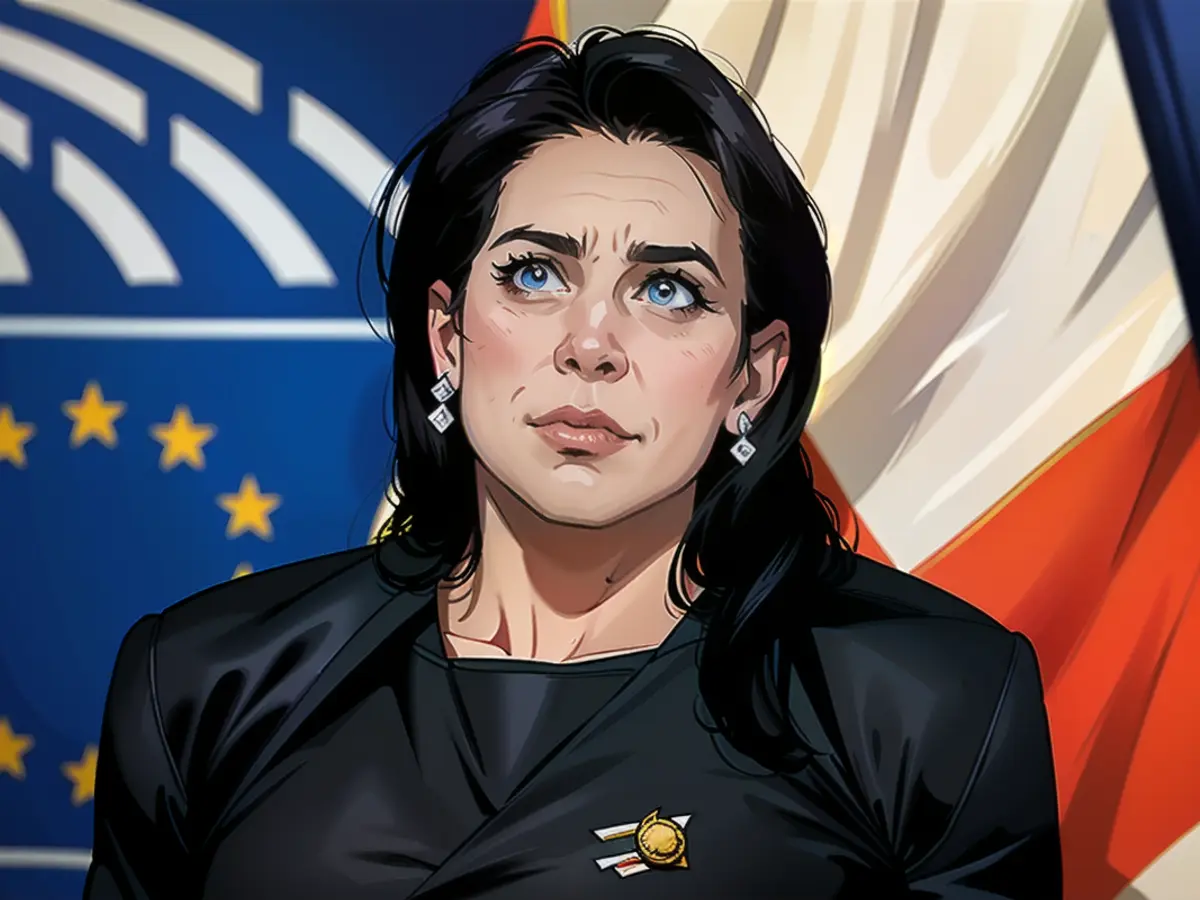Georgian leader denounces contentious legislation.
A recently passed law in Georgia's parliament has been causing quite the stir among the public. Many people are concerned about strengthening ties with Russia. As a result, politicians have been butting heads, both figuratively and literally. The Georgian leader is expressing her disapproval and is anticipating some potentially grim ramifications.
After the passing of a contentious piece of legislation regarding "foreign influence" in Georgia, President Salome Zurabishvili has stepped in and rejected it. "I'm vetoing this bill (...) as it is essentially Russian, and it goes against our constitution," she stated in a televised address. Additionally, she pointed out that it violates "all European standards." Despite the president's veto, the pro-government parliamentarians in Tbilisi have sufficient numbers to override it.
On Tuesday, the Georgian parliament approved this law. It stipulates that any organizations or media that receive over 20% of their funding from abroad will need to register as entities that "advance the interests of foreign powers" in the ex-Soviet nation. The opposition claims this law is reminiscent of the "foreign agents" legislation in Russia, which allows the authorities to take severe action against critical media and organizations.
Thousands of Georgians have been protesting for weeks due to this law. Overseas, the EU, UN, and NATO have all voiced their objections. The German government also wants the law to be abolished.
Critics decry this law as a threat to press freedom and Georgia's efforts to join the EU. The political opposition even refers to the law as a "Russian law" since Moscow uses similar laws to silence independent news outlets, non-profit organizations, and any activists who critique the Kremlin. However, the government view this law as a means to protect their domestic politics from perceived harmful foreign influences and combat unspecified actors that might destabilize Georgia.
Georgia is situated on Russia's southern border and holds significant geopolitical importance. It has been an EU membership candidate since December. Unfortunately, with the introduction of this law, any plausible future for Georgia in the European Union seems unlikely.
Read also:
- Year of climate records: extreme is the new normal
- Precautionary arrests show Islamist terror threat
- UN vote urges Israel to ceasefire
- SPD rules out budget resolution before the end of the year
- Despite the EU Parliament expressing their concerns about the contentious legislation, the pro-government parliamentarians in Tbilisi have enough support to override the president's veto.
- The demonstrations in Tbilisi against the new law have gained international support, with the EU, UN, NATO, and even Germany urging for its abolition.
- This controversial law, which mirrors Russia's "foreign agents" legislation, has led to accusations of threats to press freedom and Georgia's EU membership prospects, with many viewing it as another tool for Moscow to exert influence.
Source: www.ntv.de








